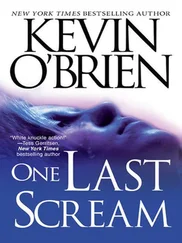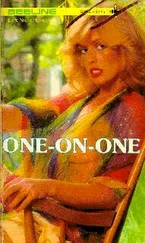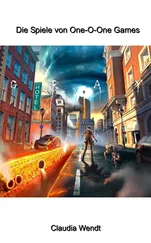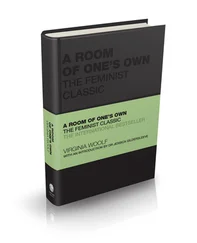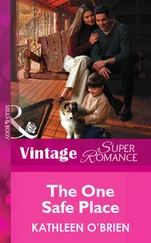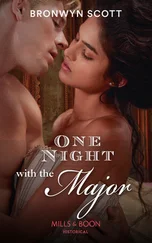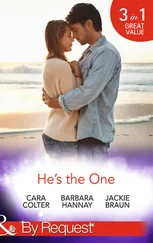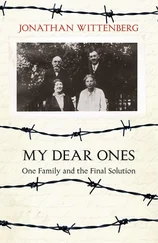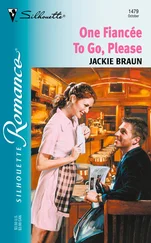On the fifth day of his tour, Khrushchev arrives in Los Angeles, in time for lunch for four hundred people at Twentieth Century-Fox. There has been such demand for places that spouses have been banned unless they also happen to be stars. There are one or two couples – Elizabeth Taylor and Eddie Fisher, Tony Curtis and Janet Leigh – but they are few and far between.
Khrushchev enters a packed room. Everyone who is anyone is here: Edward G. Robinson, Judy Garland, Ginger Rogers, Kirk Douglas, Tony Curtis, Dean Martin, Debbie Reynolds, Nat ‘King’ Cole, Frank Sinatra, Maurice Chevalier, Zsa Zsa Gabor. Mrs Khrushchev is seated between Bob Hope and Gary Cooper. Conversation proves stilted.
‘Why don’t you move out here? You’ll like the climate,’ suggests Cooper.
‘No,’ replies Mrs Khrushchev. ‘Moscow is all right for me.’
Khrushchev is on the top table, next to Skouras. Lunch has its awkward moments. When Khrushchev is told that his spur-of-the-moment request to visit Disneyland has been turned down, owing to security worries, he sends the American Ambassador to the UN a furious note. ‘I understand you have cancelled the trip to Disneyland. I am most displeased.’
The after-lunch speeches are awkward. Khrushchev heckles Skouras during his speech of welcome, and further heckles Henry Cabot Lodge as he speaks of America’s affection for Russian culture. ‘Have you seen They Fought for Their Homeland?’ he yells. ‘It is based on a novel by Mikhail Sholokhov.’
‘No.’
‘Well, buy it. You should see it.’
In his own speech, Khrushchev grows very bullish. ‘I have a question for you. Which country has the best ballet? Yours?! You do not even have a permanent opera and ballet theatre! Your theatres thrive on what is given to them by rich people! In our country, it is the state that gives the money! And the best ballet is in the Soviet Union! It is our pride!’
After going on like this for forty-five minutes, he suddenly seems to remember something. ‘Just now, I was told that I could not go to Disneyland. I asked, “Why not? What is it? Do you have rocket-launching pads there?” Just listen to what I was told: “We” – which means the American authorities – “cannot guarantee your security there.” What is it? Is there an epidemic of cholera there? Have gangsters taken hold of the place?’ He punches the air, and starts to look angry. ‘That’s the situation I find myself in. For me, such a situation is inconceivable. I cannot find words to explain this to my people!’
At last he sits down. The Hollywood audience applauds. As he is being shown to the sound stage to watch the movie Can-Can being filmed, *he recognises Marilyn Monroe and darts over to shake her hand. All wide-eyed, Marilyn delivers a line that Natalie Wood, a fluent Russian speaker, has coached her to say. For once, she gets it right first time: ‘We the workers of Twentieth Century-Fox rejoice that you have come to visit our studio and country.’
Khrushchev seems to appreciate her effort. ‘He looked at me the way a man looks on a woman,’ she recalls.
‘You’re a very lovely young lady,’ he says, squeezing her hand.
‘My husband, Arthur Miller, sends you his greeting. There should be more of this kind of thing. It would help both our countries understand each other.’
Afterwards, Marilyn Monroe enthuses, ‘This is about the biggest day in the history of the movie business.’ But when she gets back home, she has changed her tune. ‘He was fat and ugly and had warts on his face and he growled,’ she tells Lena. ‘Who would want to be a Communist with a President like that?’ †
But she is pretty sure that the Premier enjoyed their meeting. ‘I could tell Khrushchev liked me. He smiled more when he was introduced to me than for anybody else at the whole banquet. And everybody else was there. He squeezed my hand so long and so hard that I thought he would break it. I guess it was better than having to kiss him.’
LAMBASTS
Harcourt Room, Palace of Westminster, London
April 23rd 1956
A formal dinner is being held by the National Executive Committee of the Labour Party to honour Nikita Khrushchev, the leader of the Soviet Union, and Marshal Nikolai Bulganin, his Premier, both of whom are in Britain at the invitation of the Conservative government.
Khrushchev is never the easiest of guests. *Mrs Anthony Eden thinks his idea of dinner-table repartee is to declare that Soviet missiles ‘could easily reach your island and quite a bit farther’. †Fortunately, dinner with the Queen earlier in the week passes without incident: she is not one to pick an argument. In fact, Khrushchev finds her ‘completely unpretentious, completely without haughtiness … the sort of young woman you’d be likely to meet walking along Gorky Street on a balmy Sunday afternoon’.
During the Labour Party dinner, the Shadow Minister of Supply, George Brown, puffs away on his pipe, dutifully listening to a welcoming speech by the Chairman of the Labour Party, then to a speech by Bulganin. Before long, a few of his more left-wing colleagues, keen to demonstrate their friendliness towards the Soviet Union, start thumping the table and chanting, ‘We – want – Khrush-chev,’ over and over again.
Never short of things to say, Khrushchev leaps up with a great beam on his face to deliver an impromptu speech. The way Brown remembers it, Khrushchev ‘just went on and on. He delivered a great denunciation of Germany, put in a lot of stuff about the beginning of the war, and followed this with a particularly offensive passage about Britain’s role in the war – how we had thrown the blood-thirsty Germans at the throat of the nice Russians, and so on.’
For Brown, enough is enough. He remembers muttering, ‘May God forgive you,’ but to his fellow guests the mutter emerges as more of a bark. Khrushchev stops speaking. He turns to Brown and asks him to repeat what he has just said. Brown does not reply, and those around him urge him to stay silent. But Khrushchev is spoiling for a fight, and announces to the room that Brown is clearly too afraid to repeat his remark.
Brown isn’t going to take this lying down. ‘I will gladly repeat my remark!’ he announces. ‘I said, “May God forgive you!” … What I meant was that it was you who signed the treaty with Ribbentrop, not us, and that if you hadn’t signed your treaty with Ribbentrop, we wouldn’t have been at war for a whole year before you even got started, that a lot of my comrades wouldn’t now be dead, and that a lot of brave Poles wouldn’t now be dead!’
At this, pandemonium breaks out, with Khrushchev launching a tirade against democratic socialists, against Britain, and, in Brown’s words, against ‘pretty well everybody’. Neither man is prepared to back down. Whenever Khrushchev pauses for breath, Brown puts his oar in, voicing his support for the Eastern European political prisoners whom the Labour Party has solemnly agreed, in a pre-dinner arrangement, not to mention. For good measure, he adds that Khrushchev’s son Sergei, who is there at the meal, dares not disagree with his father. Khrushchev replies with a lengthy speech, delivered, thinks the mild-mannered Labour leader Hugh Gaitskell, ‘with vehemence, even brutality’, and ends by telling his hosts they should make an alliance with the Russians, because if not, they will be swatted ‘off the face of the earth like a dirty old black beetle’.
At this point, the Welsh firebrand Aneurin Bevan leaps to Brown’s aid, wagging his finger and repeating, ‘But this is ridiculous, Mr Khrushchev, but this is ridiculous.’ Gaitskell attempts a conciliatory speech, ending with a toast ‘to our next meeting’.
Читать дальше

